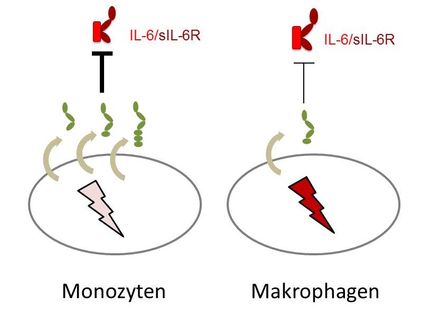Biotie and Roche sign agreement for VAP-1 antibody program
Advertisement
BioTie and F. Hoffmann La Roche have signed an option agreement for BioTie's fully human antibody program targeting Vascular adhesion Protein-1 (VAP-1) in inflammatory diseases. Inhibiting VAP-1 reduces inflammation by regulating the migration of leukocytes, or white blood cells, to inflamed tissues. BioTie's fully human VAP-1 antibody is based on Medarex, Inc's HuMab-technology and is expected to enter into clinical development in early 2007.
This new agreement extends the collaboration between the two companies as Roche already holds an exclusive option right to BioTie's VAP-1 SSAO enzyme small molecule inhibitor candidates in preclinical phase. Roche continues to contribute its expertise to the development of BioTie's VAP-1 SSAO small molecule inhibitor candidates.
Under the terms of the agreement, Roche will pay an option initiation fee of EUR 5 million, which grants Roche an exclusive option right to an exclusive, worldwide license agreement for BioTie's fully human antibody targeting VAP-1, excluding Japan, Taiwan, Singapore, New Zealand, and Australia. The initiation fee will be paid in two instalments in 2006-2007, and the initial option right will end upon completion of Phase I. Roche may extend the option right to later development points by paying additional fees. BioTie will retain all rights to the program until a license is granted to Roche.
Vascular Adhesion Protein-1 (VAP-1, is a dual-function molecule with enzymatic and adhesion activities. VAP-1 contributes to the adhesion of white blood cells to endothelial cells and is greatly amplified in inflamed blood vessels. The VAP-1 semicarbazide-sensitive amine oxidase (SSAO) enzyme contributes to the production of molecules that exacerbate inflammation. VAP-1 specific monoclonal antibodies and VAP-1 SSAO small molecule inhibitors have been shown in animal models of inflammation to be potent inhibitors of disease activity.
Other news from the department business & finance
Most read news
More news from our other portals
See the theme worlds for related content
Topic world Antibodies
Antibodies are specialized molecules of our immune system that can specifically recognize and neutralize pathogens or foreign substances. Antibody research in biotech and pharma has recognized this natural defense potential and is working intensively to make it therapeutically useful. From monoclonal antibodies used against cancer or autoimmune diseases to antibody-drug conjugates that specifically transport drugs to disease cells - the possibilities are enormous

Topic world Antibodies
Antibodies are specialized molecules of our immune system that can specifically recognize and neutralize pathogens or foreign substances. Antibody research in biotech and pharma has recognized this natural defense potential and is working intensively to make it therapeutically useful. From monoclonal antibodies used against cancer or autoimmune diseases to antibody-drug conjugates that specifically transport drugs to disease cells - the possibilities are enormous























































